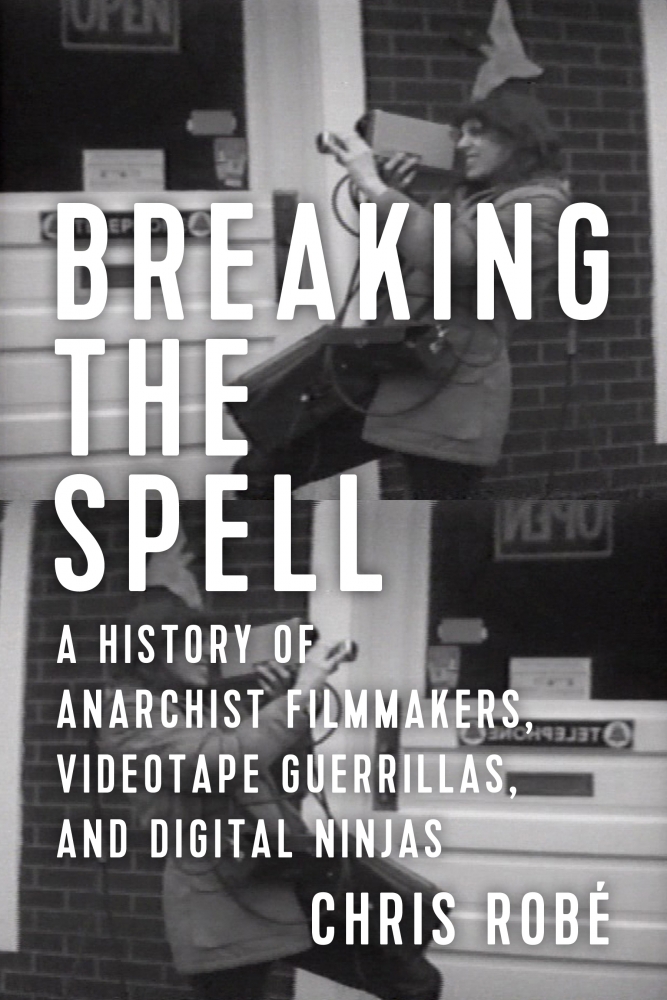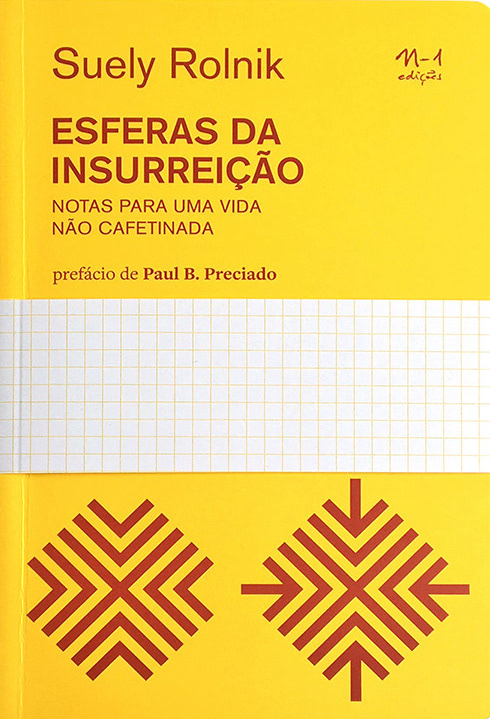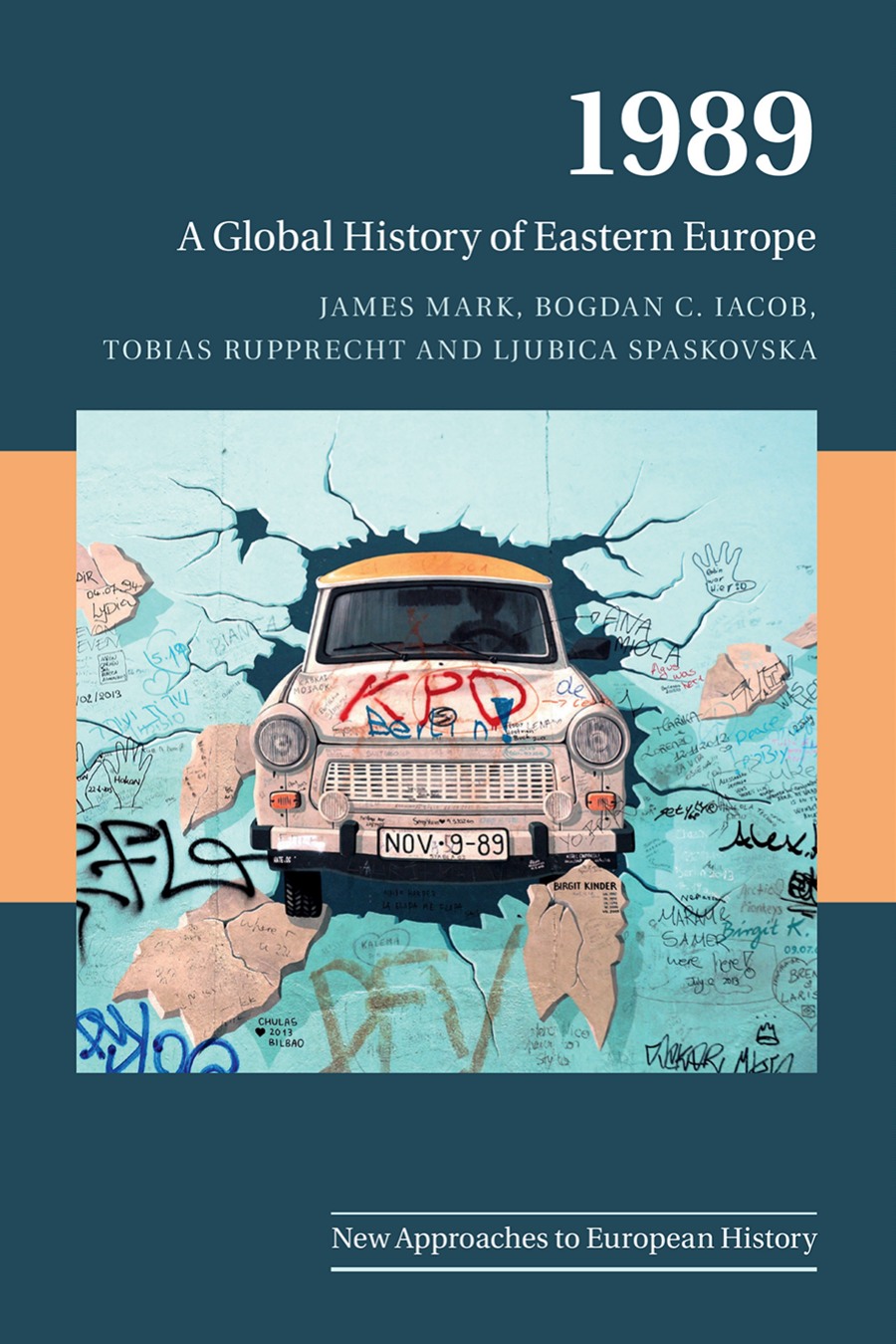Chris Robé: Breaking the Spell: A History of Anarchist Filmmakers, Videotape Guerrillas, and Digital Ninjas (2017)
Filed under book | Tags: · activism, aesthetics, aids, anarchism, autonomy, direct action, ecology, film, indigenous peoples, labour, marxism, media activism, neoliberalism, politics, protest, punk, social movements, strike, third cinema, video, video activism, video art

“Breaking the Spell offers the first full-length study that charts the historical trajectory of anarchist-inflected video activism from the late 1960s to the present. Two predominant trends emerge from this social movement-based video activism: 1) anarchist-inflected processes increasingly structure its production, distribution, and exhibition practices; and 2) video does not simply represent collective actions and events, but also serves as a form of activist practice in and of itself from the moment of recording to its later distribution and exhibition. Video plays an increasingly important role among activists in the growing global resistance against neoliberal capitalism. As various radical theorists have pointed out, subjectivity itself becomes a key terrain of struggle as capitalism increasingly structures and mines it through social media sites, cell phone technology, and new “flexible” work and living patterns. As a result, alternative media production becomes a central location where new collective forms of subjectivity can be created to challenge aspects of neoliberalism.
Chris Robé’s book fills in historical gaps by bringing to light unexplored video activist groups like the Cascadia Forest Defenders, eco-video activists from Eugene, Oregon; Mobile Voices, Latino day laborers harnessing cell phone technology to combat racism and police harassment in Los Angeles; and Outta Your Backpack Media, indigenous youth from the Southwest who use video to celebrate their culture and fight against marginalization. This groundbreaking study also deepens our understanding of more well-researched movements like AIDS video activism, Paper Tiger Television, and Indymedia by situating them within a longer history and wider context of radical video activism.”
Publisher PM Press, Oakland, CA, 2017
ISBN 9781629632339, 1629632333
x+469 pages
Interview with author: The New Architects (video, 2017, 43 min).
Reviews: Beth Geglia (Interface, 2017), Franklin Lopez (Fifth Estate, 2017), Patricia R. Zimmerman (Jump Cut, 2018), Allan Atliff (Anarchist Studies, 2017).
PDF (16 MB)
Academia.edu (author)
Suely Rolnik: Esferas da insurreição: notas para uma vida não cafetinada (2018–) [BR-PT, ES]
Filed under book | Tags: · decolonization, neoliberalism, philosophy, politics, subjectivity, unconscious

“Este livro é como uma belíssima larva que cresce no esterco: a ondulação e a suavidade aveludada do pensamento de Suely Rolnik, seu riso contagioso, a falta de vergonha e de medo lhe permite entrar nas camadas mais obscuras do fascismo contemporâneo, nos guiar nos lugares que mais nos aterrorizam e tirar dali algo com o que construir um horizonte de vida coletiva, uma artista cuja matéria é a pulsão. Uma cultivadora dos bichos-da-seda da “izquierda bajo la piel”. Não se pode pedir mais de uma escritora: devir-larva, cartografar a lama com a mesma precisão com que outro cartografaria uma mina de ouro. Por isso, leitores, adentrem com essa larva no magma da besta e busquem os germens da vida que, ainda que desconheçam, os rodeiam, e que, com uma torção do olhar, poderiam ser seus – poderia ser sua própria vida.” (Paul B. Preciado)
Preface by Paul B. Preciado
Publisher n-1, São Paulo, 2018
ISBN 9788566943597, 8566943597
206 pages
Reviews: Tiago da Silva Porto (IDE, 2019, BR-PT), Alessandra Aparecida Dias Aguiar & Pedro Xavier Russo Bonetto (Filos.e Educ., 2020, BR-PT), Nazaret Castro Buzon (Amazonas, 2019, ES), Maximiliano Reyes (Enclave Comuhae, 2019, ES), Gabriela Cornet (Recial, 2020, ES).
Publisher (BR)
Publisher (ES)
WorldCat (BR)
Esferas da insurreição (BR-Portuguese, 2018)
Esferas de la insurrección (Spanish, trans. Cecilia Palmeiro, Marcia Cabrera, and Damian Kraus, 2019)
James Mark, Bogdan C. Iacob, Tobias Rupprecht, Ljubica Spaskovska: 1989: A Global History of Eastern Europe (2019)
Filed under book | Tags: · 1989, authoritarianism, capitalism, central europe, communism, democracy, eastern europe, europe, european union, globalisation, history, human rights, illiberalism, internationalism, liberalism, market, migration, nationalism, neoliberalism, politics, post-communism, refugees, socialism, southeastern europe, soviet union, transition

“The collapse of the Berlin Wall has come to represent the entry of an isolated region onto the global stage. On the contrary, this study argues that communist states had in fact long been shapers of an interconnecting world, with ‘1989’ instead marking a choice by local elites about the form that globalisation should take. Published to coincide with the thirtieth anniversary of the 1989 revolutions, this work draws on material from local archives to international institutions to explore the place of Eastern Europe in the emergence, since the 1970s, of a new world order that combined neoliberal economics and liberal democracy with increasingly bordered civilisational, racial and religious identities. An original and wide-ranging history, it explores the importance of the region’s links to the West, East Asia, Africa, and Latin America in this global transformation, reclaiming the era’s other visions such as socialist democracy or authoritarian modernisation which had been lost in triumphalist histories of market liberalism.”
Publisher Cambridge University Press, Cambridge, UK, 2019
New Approaches to European History series, 59
ISBN 9781108427005, 1108427006
vii+372 pages
Reviews: Árpád von Klimo (H-Diplo, 2020), Tilmann Siebeneichner (German History, 2020), Nick Ostrum (Europe Now, 2020),
Interviews with co-author (James Mark): Ondřej Bělíček (A2larm, CZ, 2019), Ondřej Bělíček (Jacobin, 2020), Ronaldas Galinis (LRT.lt, 2020), Rūta Miškinytė (15min.lt, 2020, LT), Zoltán Ginelli (LeftEast, 2020, Part 2, Part 3).
Book summary (Eurozine, 2019).
Project website
Publisher
WorldCat

